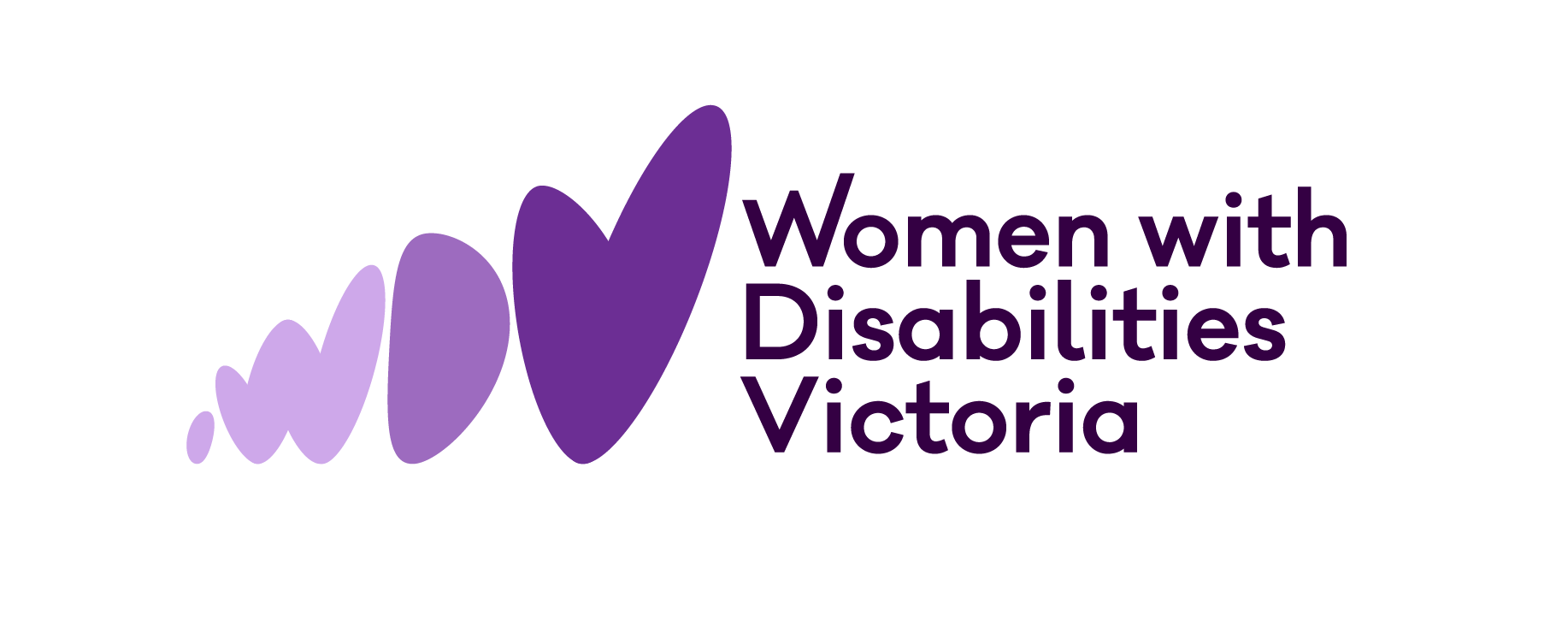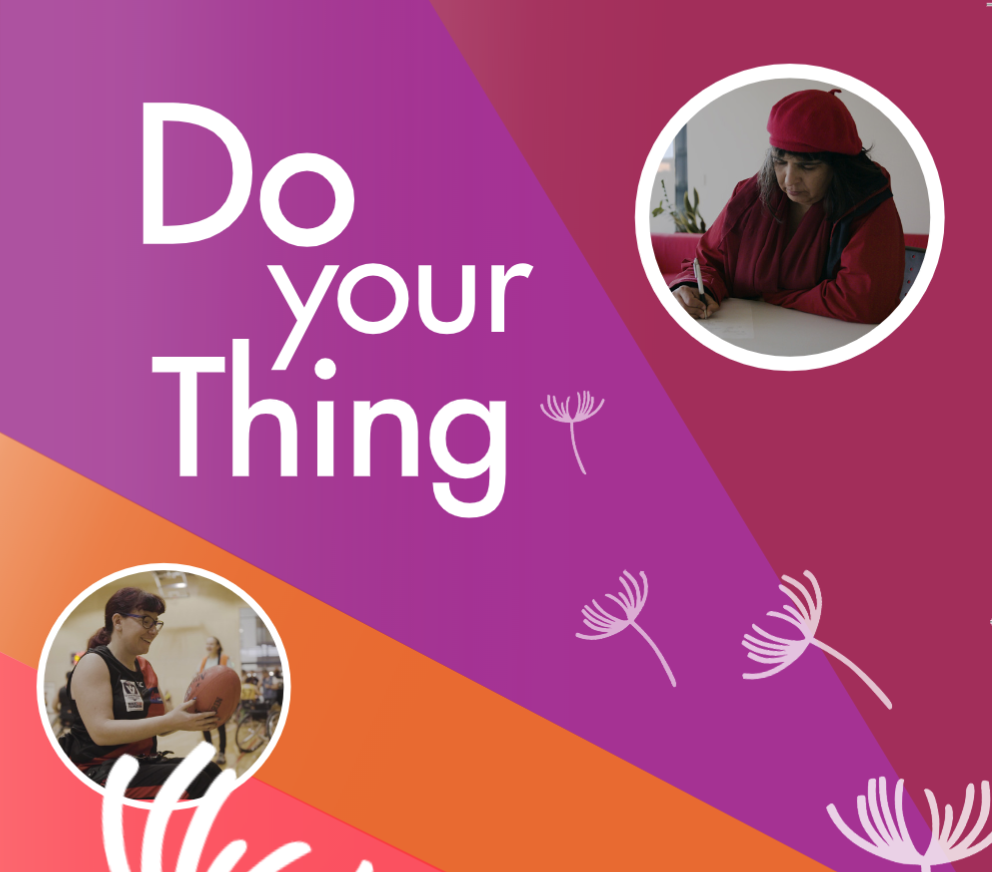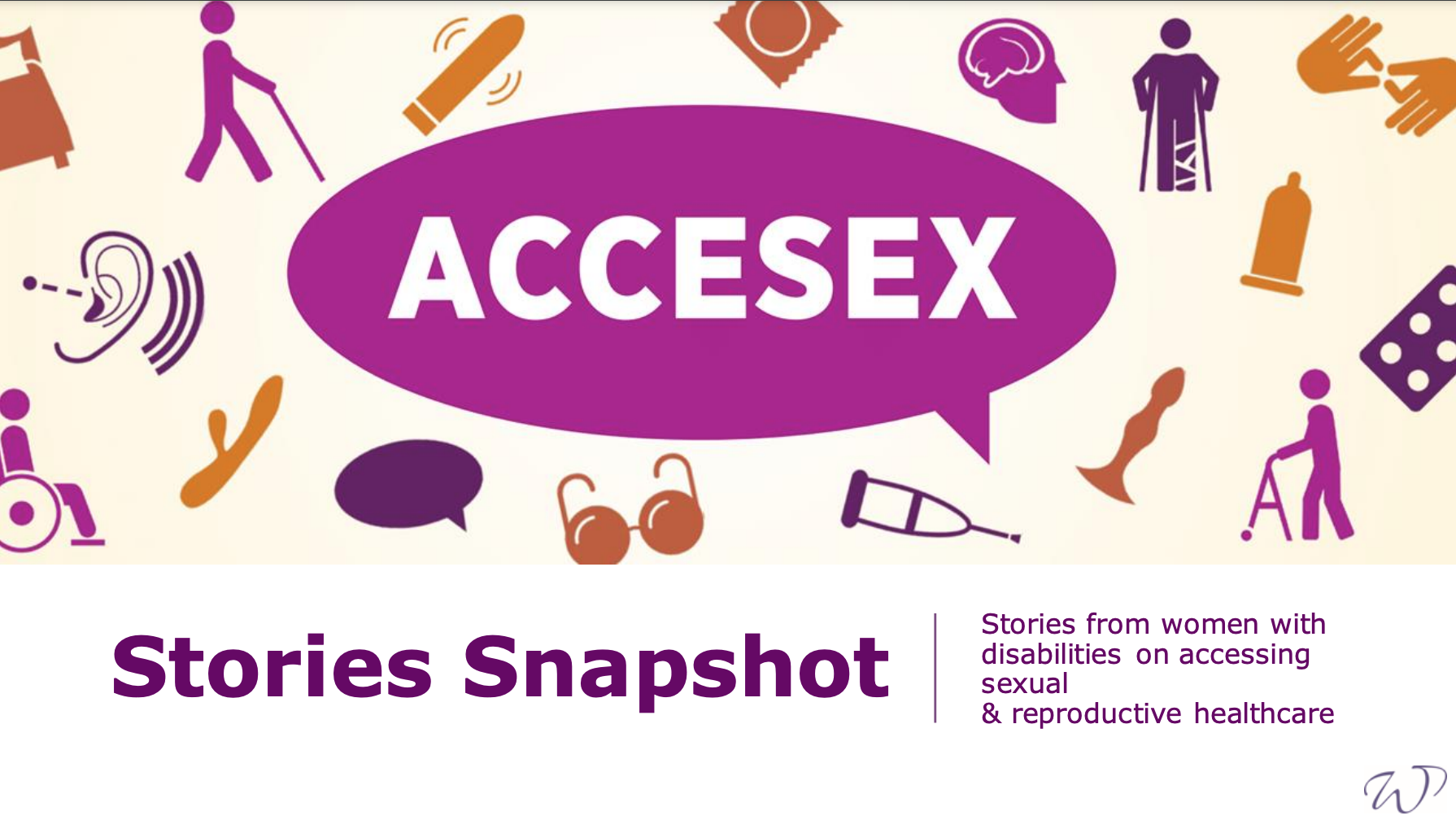
In 2021, we took part in 16 Days of Activism against Gender-Based Violence.
The international campaign started on November 25, International Day for the Elimination of Violence against Women, and ended on December 10, Human Rights Day. It also encompassed December 3, International Day of People with Disability.
In line with Respect Victoria’s theme for 2020/2021, Respect Women: Call it Out, we spoke about what respect means for women with disabilities, sharing our resources on violence prevention.
Day 1

Our animated video “Understanding Disability” talks about 6 keystones: the social model of disability, human rights, gender equality, intersectionality, centering lived experience and disability pride.
When these 6 keystones are in place, we can work together for a more inclusive and equitable society.
Day 2

Women with disabilities are much more likely to experience violence than women without disabilities and have unique challenges when it comes to seeking support.
This factsheet looks at some of the statistics regarding violence against women with disabilities, and can be shared with health professionals, support workers and anyone who works with women with disability.
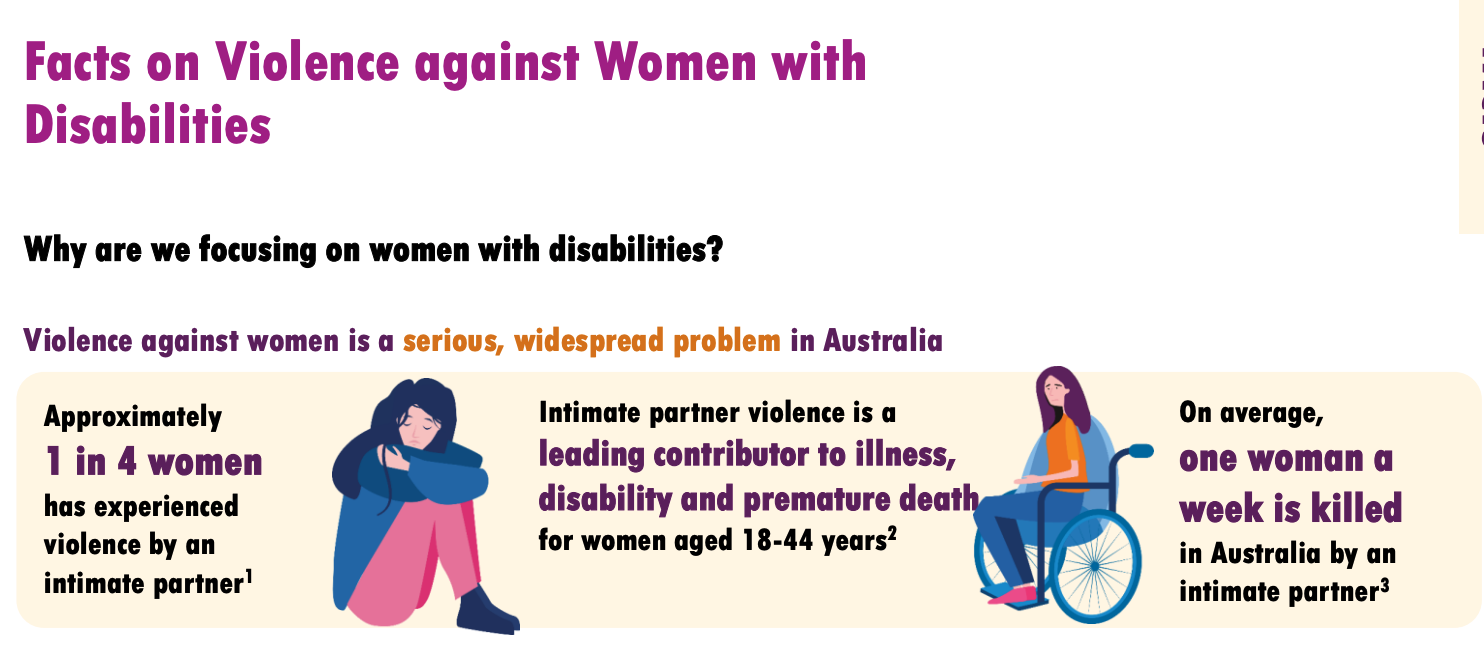
Day 3

A short doco on the journey of survivor-advocate and WDV member Nicole Lee, filmed as part of our Do Your Thing series. Nicole talks about family, re-finding herself and her advocacy through the media.
Day 4

One of the main drivers of violence against women with disabilities is the condoning of that violence, particularly when perpetrated by someone in a caring role.
We have created a video resource, featuring women with disabilities and one ally, discussing their personal experience and knowledge on the issue.
Day 5

To microaggressions against women with disabilities – those annoying little comments and actions that reveal deeply held sexist and ableist attitudes and beliefs – we say no!
In this series of images, we look at some of the microaggressions women with disabilities often hear or experience, and what they reveal about the attitudes of the people who make them.
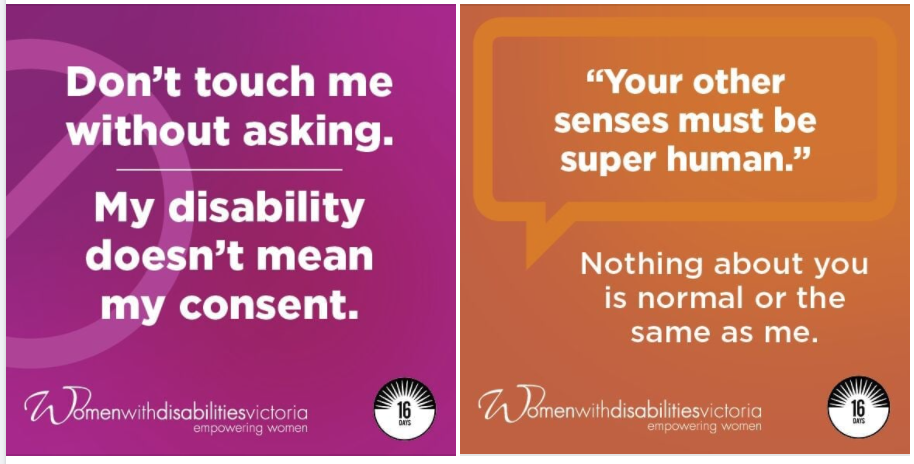
Day 6

For many people with disabilities, the NDIS funds our essential supports. However, despite making up 49% of people with disabilities in Australia, only 37% of NDIS participants are women.
We have partnered with UNSW and Women with Disabilities ACT for research on why women are not equally represented in the NDIS. The study includes a literature review and interviews with women.
Women interviewed spoke about some of the reasons that women are under-represented in the NDIS. Reasons included that women are taught to hide or mask symptoms, that women and men are treated differently when they attempt to negotiate supports, and that conditions women experienced are not as often medically diagnosed as those experienced by men.
A series of publications will come from this project. The first two are out now in the International Journal for Equity in Health and in Broad Agenda.
Day 7

Sexual health services should be available and accessible to women with disabilities.
Women with disabilities are sometimes infantilised and assumed not to be having sex, or assumptions might be made that we do not want (or should not be having) children.
This can lead to sexual health services neglecting the needs of women with disabilities, or providing care that is inappropriate or inaccessible.
At Women with Disabilities Victoria, we have produced a series of educational videos for healthcare providers through our AcceSex program, exploring a range issues.
How to be Intersectional on Disability, Gender and Sexual and Reproductive Health
How to be more Accessible in a Hospital or Clinical Setting
How to Deliver Sexual and Reproductive Healthcare to Women with Disabilities
We also have a fact sheet on sexual and reproductive health for women with disabilities:
Day 8

We want diverse media representation that doesn’t rely on tropes about women with disabilities as tragic figures, victims, recipients of charity or tales of inspiration.
We want to be represented in all our diversity, with interests, quirks, jobs, hobbies, sexuality, family, ethnicity and community. We want to see women with disabilities in lead roles, not always as the supporting characters.
WDV has produced a series of videos exploring the complex lives of women with disabilities doing our own thing in our communities, which you can watch online (opens in new window).
Day 9

One of the main drivers of violence against women with disabilities is a lack of financial and physical freedom to leave abusive, coercive relationships.
This may be due to lack of access to work or essential supports, or barriers to independent decision-making including guardianship laws.
We have created a video resource featuring women with disabilities discussing their own experiences, and some of the barriers we face to having control over our own decision-making
Day 10

Like everyone, women with disabilities have a right to safety and respect. Sadly, we live in an ableist and patriarchal world where family violence against women and people with disabilities are too often normalised.
In this video resource, made for women with disabilities, we talk about family violence, the ways it impacts us, and our rights under the current law (CW: Descriptions of violence)
The video is best watched accompanied by the video guide which can be found in PDF and accessible formats, along with an audio described version of the video.
If you are impacted by family violence, or need someone to talk to after watching this video, 1800 RESPECT can be contacted on 1800 737 732. Lifeline can be contacted on 13 11 14.
Day 11

One of the drivers of violence against women with disabilities is stereotypes – stereotypes about men and women (women as passive and emotional, men as dominant and aggressive) and about disability (low expectations, infantilisation).
We have created a video resource, featuring women with disabilities and one ally, describing their experiences and the impact of being stereotyped.
The video is accompanied by information sheets, speaking more directly to the causes and actions that can be taken. These can be viewed in PDF and Word formats.
Day 12

Women with Disabilities Victoria collaborated with National Disability Services to develop four short films to help disability workers identify and respond to family violence.
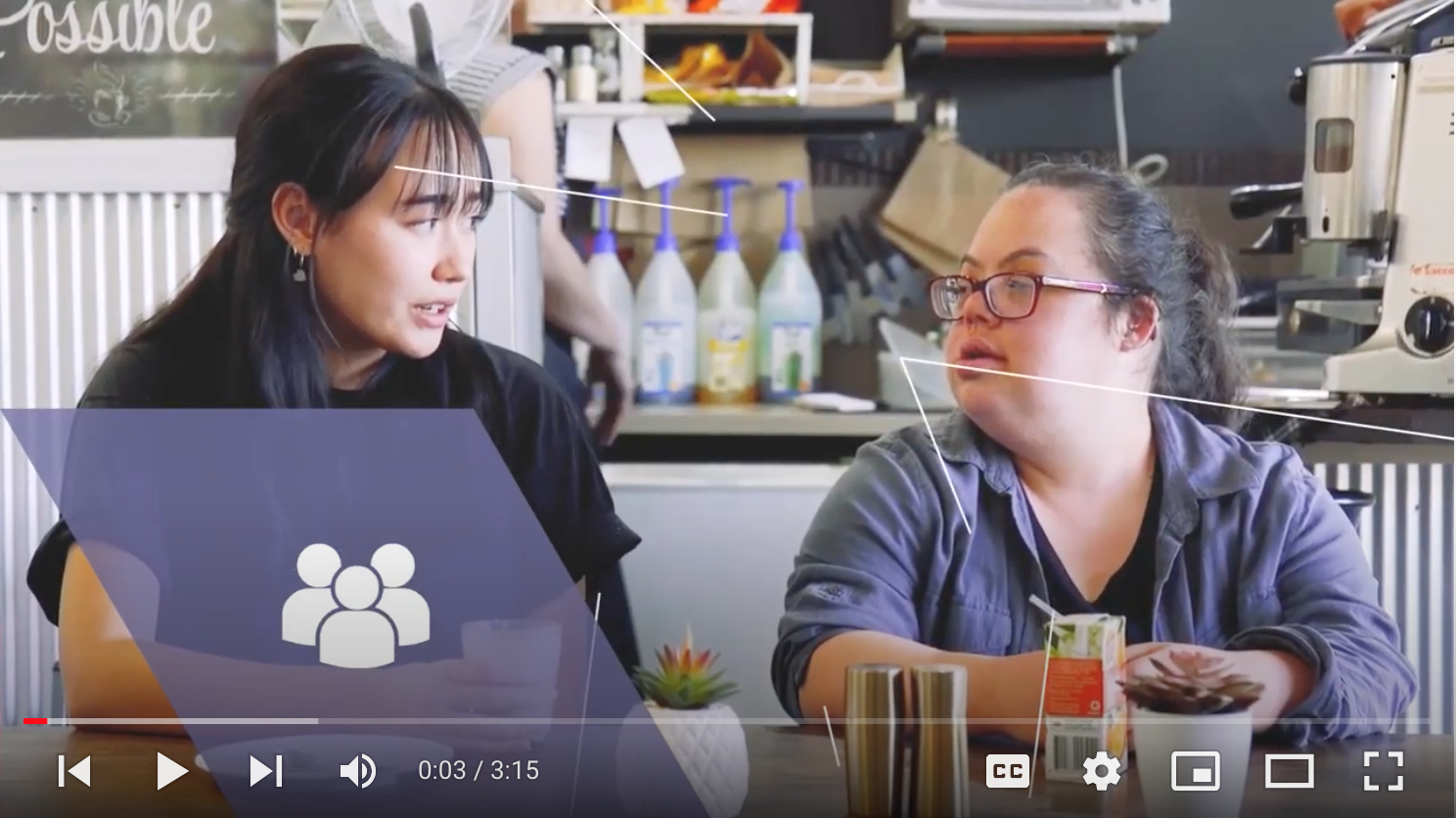
The films are:
- Preventing and responding to family violence.
- Prevention of domestic and family violence.
- Early intervention in domestic and family violence.
- Responding to domestic and family violence.
Day 13

Violence prevention strategies are not always inclusive of women with disabilities. That’s why, on Day 13 of 16 Days of Activism Against Gender-Based Violence, we’re sharing our Toolkit for Women’s Health Services.
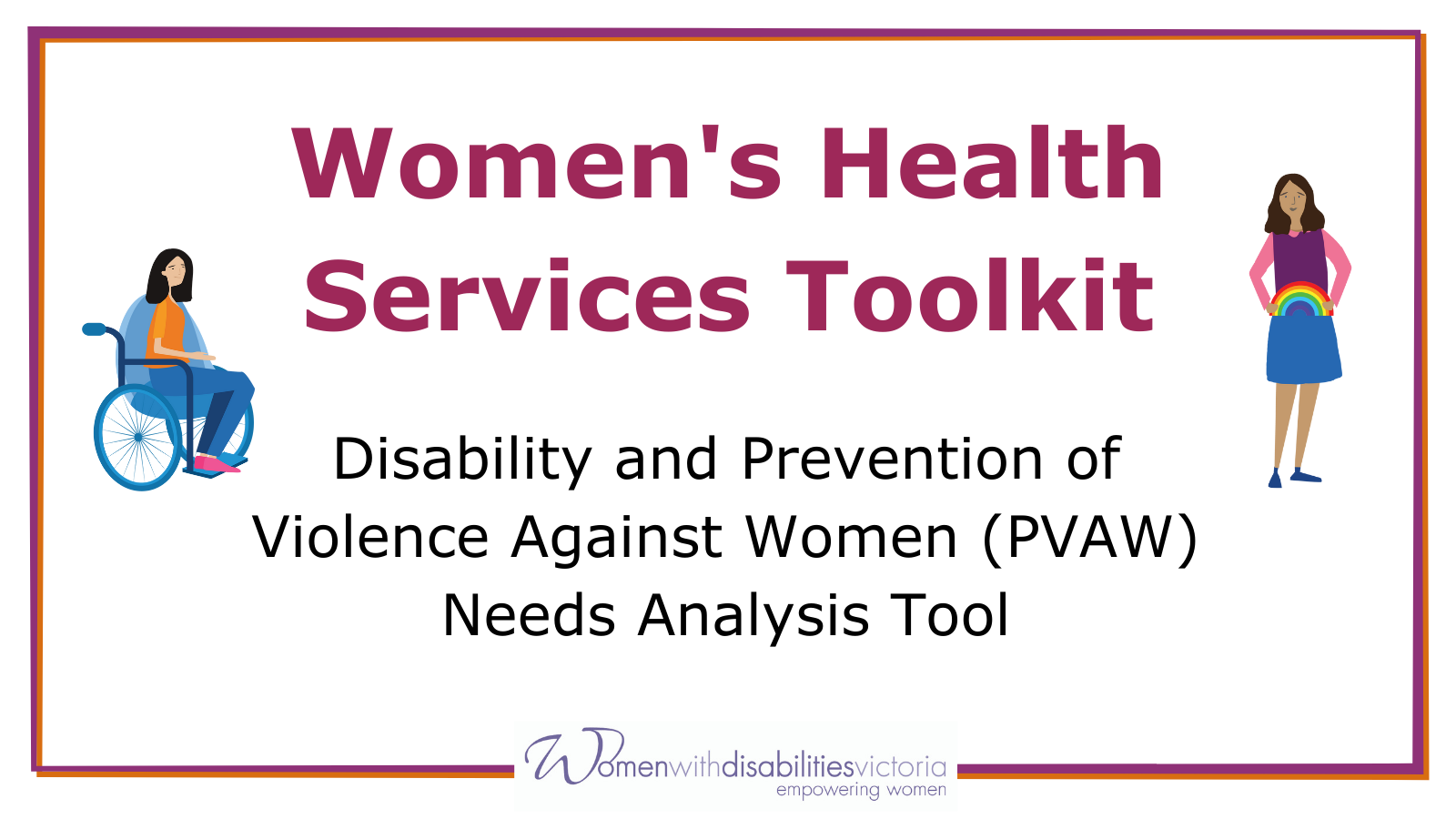
The toolkit is designed to support women’s health services to include the rights and perspectives of women with disabilities in their violence prevention strategies.
Day 14

We all have a right to safe and supportive sexual and reproductive healthcare. However, women with disabilities sometimes find ourselves dealing with assumptions and stereotypes from healthcare professionals that can lead to negative outcomes or even traumatic experiences within the healthcare system.
Day 15

One of the drivers of violence against people from marginalised groups is people with more power using exclusion and disrespect toward people without power as a means of bonding with each other. In these stories, women with disabilities talk about their experiences of this.
The video is accompanied by information sheets, speaking more directly to the causes and actions that can be taken. These can be viewed in PDF and Word formats.
Day 16

For the last of the 16 Days of Activism Against Gender-Based Violence, we have shared a campaign developed by Women’s Health East on the importance of equality in preventing violence against women with disabilities.

We have partnered with Women’s Health East on the Margins to the Mainstream project, in which 10 women with diverse disabilities took part in online skills development sessions. The women codesigned the campaign.
You can find the campaign here or through the Twitter thread below..
(18/18) Women with disabilities advocate for change across family, community, systemic & societal levels. People of all genders & abilities must also stand up to protect the rights of women with disabilities! #16Days #Margins2Mainstream #EqualityIs
— WDV (@WDVtweet) December 9, 2021
ID in alt text pic.twitter.com/3vzbkGxmKE
